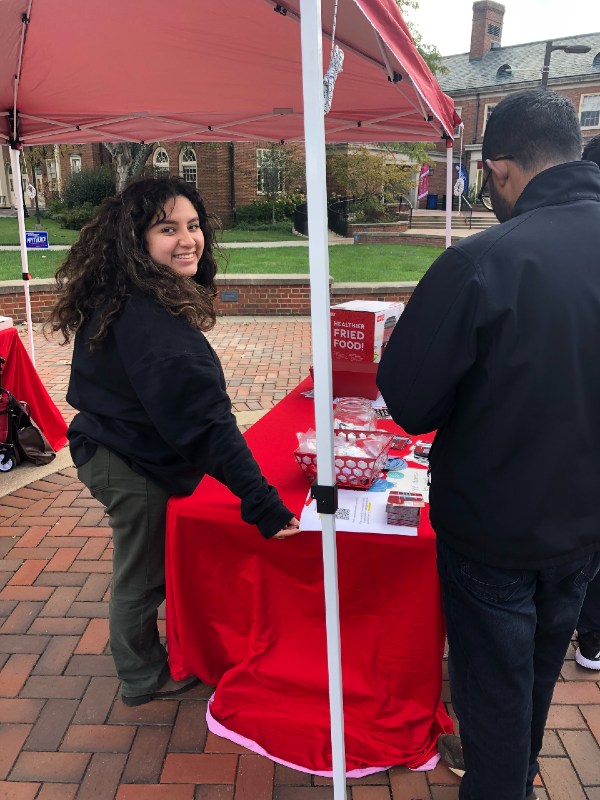Voting Among Miami University Students Up in 2020

Student voting on campus increased significantly in last year’s presidential election, rising to 70.5% in 2020 from a rate of 60.1% in 2016. This exceeds the national average of voting rates on college institutions of 66%.
Miami also received a Gold Seal Campus Award from the All In Campus Democracy Challenge due to the high voter turnout.
Miami’s Wilks Institute for Leadership and Service’s civic engagement team plans to continue increasing voter registration and turnout by emphasizing each student’s role in the electorate.
 Pizza at the Polls, November 2021The Institute hosts events such as the Oxford City Council candidates panel and “Pizza at the Polls” to promote civic education among college students. They are crafting a more targeted approach to boost the involvement of students in majors with lower turnout by incorporating civic education into the course curriculum in Miami’s first-year transition courses.
Pizza at the Polls, November 2021The Institute hosts events such as the Oxford City Council candidates panel and “Pizza at the Polls” to promote civic education among college students. They are crafting a more targeted approach to boost the involvement of students in majors with lower turnout by incorporating civic education into the course curriculum in Miami’s first-year transition courses.
Today’s report comes from the Institute for Democracy & Higher Education (IDHE), creators of the National Study of Learning, Voting, and Engagement, or NSLVE. IDHE is located at Tufts University’s Tisch College of Civic Life.
Nationwide, the study’s authors report a record-breaking set of findings. On campuses across the country, students built on the momentum swing of 2018 and voted at high rates in the 2020 election, with voter turnout jumping to 66% in last year’s presidential election. The 14 percentage point increase, from 52% turnout in the 2016 election, outpaces that of all Americans, which jumped 6 percentage points from 61% to 67%, according to the U.S. Census Bureau.
“That students, often younger and first-time voters, turned out at rates commensurate with the general public is nothing short of stunning,” said IDHE Director Nancy Thomas. “We attribute this high level of participation to many factors, including student activism on issues such as racial injustice, global climate change and voter suppression, as well as increased efforts by educators to reach students and connect them to the issues and to voting resources.”
Scott Walter, Miami’s Assistant Vice President for Student Life, reflected on the purpose of cultivating engaged students and members of society while they are at Miami and after graduation through the work of civic engagement. “I can't think of a better way to be an engaged member of the community than to vote at the local, state, and national level,” said Walter. “Voting is one of the best ways to support issues that you believe in and will also improve the community that you live in.”
IDHE’s National Study of Learning, Voting, and Engagement (NSLVE, pronounced n-solve) is the nation’s largest study of college and university student voting. Institutions must opt-in to the study, and at this time, nearly 1,200 campuses of all types—community colleges, research universities, minority-serving and women’s colleges, state universities, and private institutions—participate. The dataset reflects all 50 states and the District of Columbia and includes 49 of the nation’s 50 flagship schools. IDHE uses de-identified student records to ensure student privacy. The 2020 dataset is robust with 8,880,700 voting-eligible students representing 1,051 colleges and universities.

